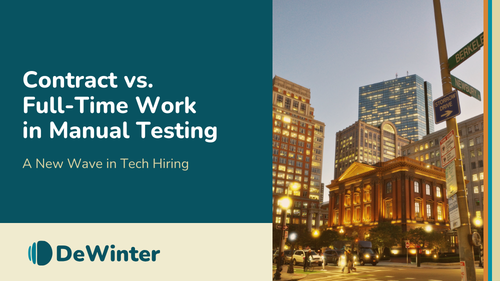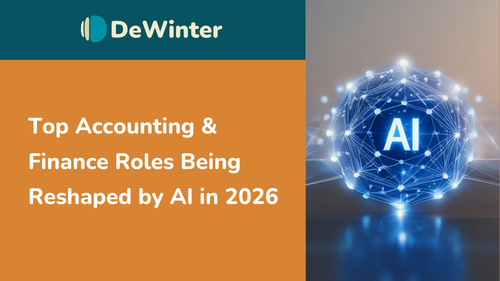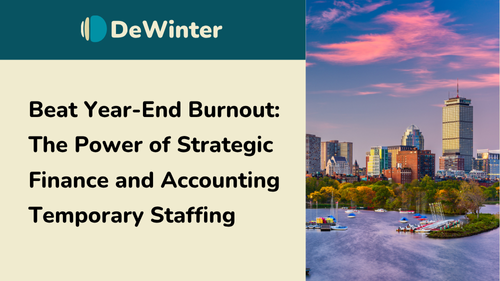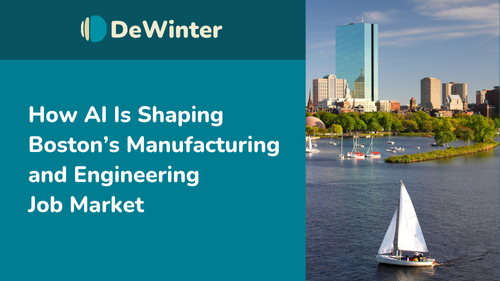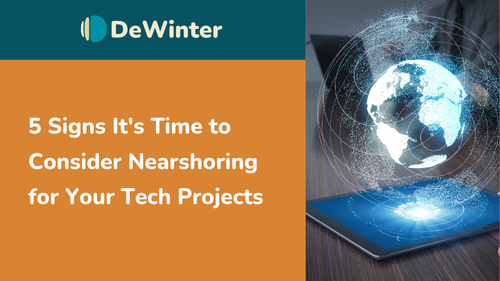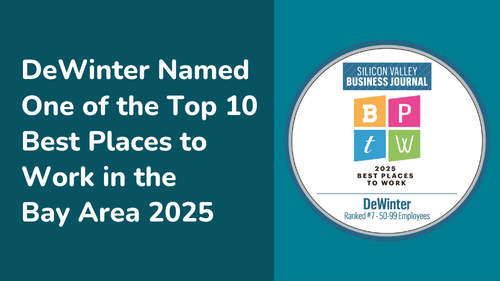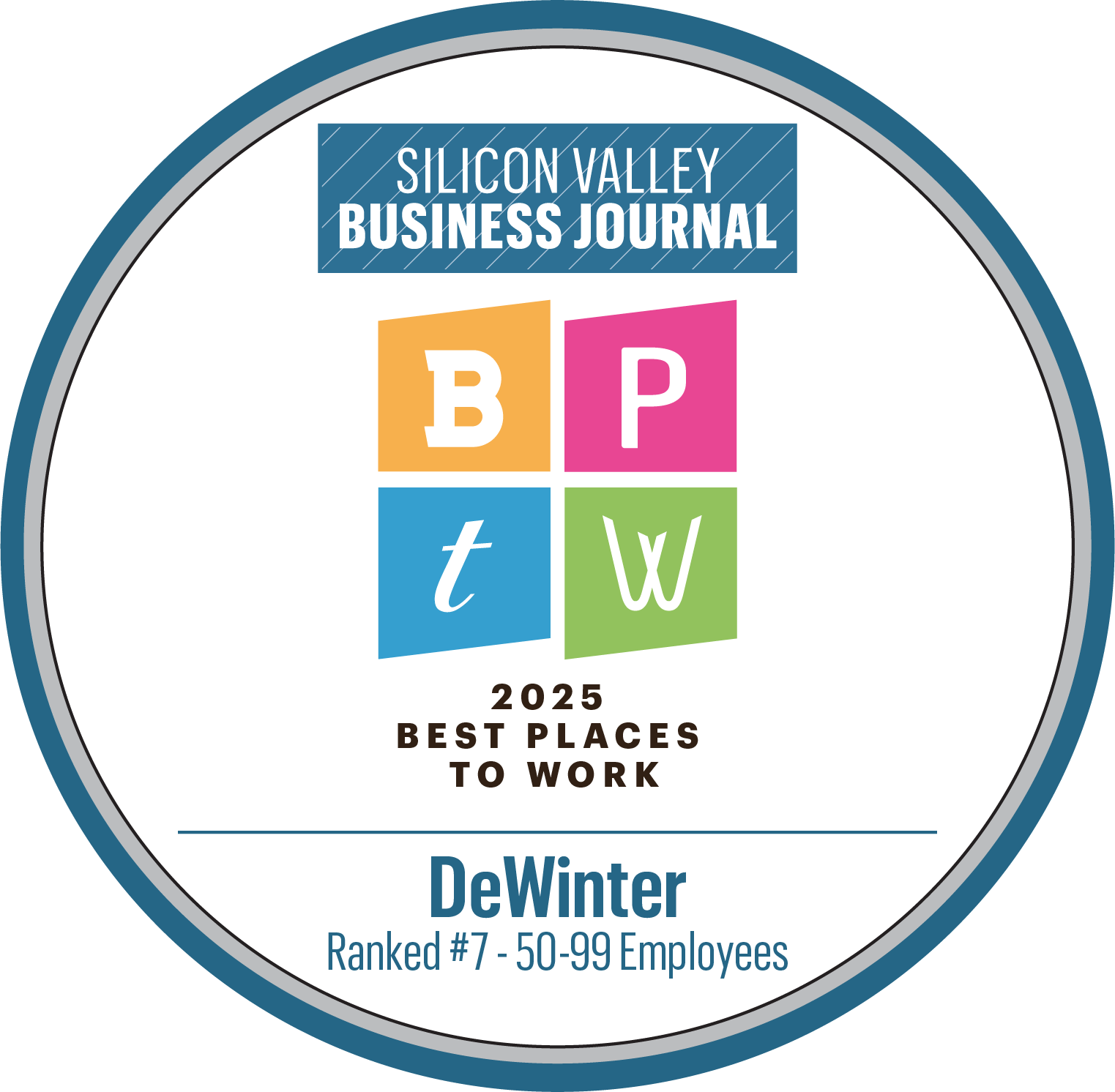The Rise of AI Roles: Top In-Demand Job Titles and What They Mean for Hiring Managers and Candidates
A 2026 Update:
As we move into 2026, AI is no longer just a trend—it has become the primary engine driving innovation across the entire tech landscape. To help you stay ahead of this rapid evolution, we’ve just released our 2026 Technology Salary Guide, featuring a deep dive into the 12 most in-demand AI roles for the coming year. Whether you are a hiring manager looking to benchmark competitive offers or a job seeker aiming to maximize your market value, our guide provides the invaluable compensation data and market insights you need to navigate this high-growth sector with confidence.
The AI Revolution: Navigating Top Roles and Cultivating Future-Ready Talent
The year is 2025, and artificial intelligence is no longer a futuristic concept but a fundamental force reshaping every industry. From healthcare to finance, manufacturing to retail, AI is automating tasks, augmenting human capabilities, and driving unprecedented innovation. This pervasive integration has created a dynamic and highly competitive job market for AI professionals that isn’t slowing down anytime soon. The global AI market is projected to reach $243.72 billion in 2025 (Statista) and AI is expected to contribute up to $15.7 trillion to the global economy by 2030
(PWC). For both hiring managers seeking to build high-performing AI teams and candidates aspiring to thrive in this evolving landscape, understanding the in-demand roles, requisite skills, and strategic approaches to talent acquisition and development is paramount.
The Evolving Landscape of AI Roles
The sheer breadth of AI applications means that the "AI professional" is not a monolithic entity. Instead, a diverse array of specialized roles has emerged, each requiring a unique blend of technical expertise and soft skills. The U.S. Bureau of Labor Statistics (BLS) projects that employment for data scientists will grow 36% from 2023 to 2033, much faster than the average for all occupations. Similarly, software developers, a closely related field, are projected to see a 17.9% increase in employment over the same period (BLS). Here are some of the most sought-after AI job titles in 2025:
- Machine Learning Engineer: These professionals are the architects of AI's intelligence. They design, build, and optimize machine learning models, deploying them into production environments. Their work is foundational, transforming theoretical algorithms into practical, scalable AI solutions. Key skills include proficiency in Python, TensorFlow, PyTorch, and a deep understanding of MLOps for efficient model management and deployment.
- AI Product Manager:
Bridging the gap between technical teams and business objectives, AI Product Managers define the strategy, roadmap, and features for AI-powered products. They possess a unique blend of technical literacy, business acumen, and strong communication skills to translate complex AI capabilities into tangible business value.
- Data Scientist (AI Applications): While data scientists have long been crucial for extracting insights from data, their role has evolved significantly with AI. Today, they are adept at leveraging AI and predictive analytics to solve complex business problems, using advanced statistical modeling, data visualization, and machine learning techniques to drive data-driven decision-making. Notably,
77% of AI-related job postings require machine learning skills for data scientists, emphasizing the shift towards AI applications.
- Prompt Engineer: This relatively new but rapidly growing role focuses on optimizing interactions with large language models (LLMs) and generative AI systems. Prompt engineers possess a deep understanding of how these models work and are skilled at crafting precise and effective prompts to achieve desired outputs, crucial for applications in content creation, customer service, and more. The global prompt engineering market size is projected to grow at a compound annual growth rate of nearly
33% from 2024 to 2030, underscoring the rapid expansion of this specialized field.
- AI Researcher: At the cutting edge of AI innovation, AI Researchers explore new algorithms, develop novel AI techniques, and push the boundaries of what AI can achieve. Often holding advanced degrees, they contribute to the academic and industrial advancement of AI through research, experimentation, and publication.
- Computer Vision Engineer: Specializing in systems that interpret and process visual data, Computer Vision Engineers are critical in industries like autonomous vehicles, healthcare imaging, and security. Their expertise lies in developing algorithms that enable machines to "see" and understand images and videos.
- Natural Language Processing (NLP) Engineer: With the explosion of conversational AI and large language models, NLP Engineers are in high demand. They build systems that enable computers to understand, interpret, and generate human language, powering everything from chatbots and virtual assistants to advanced translation services.
- AI Ethics Specialist/Consultant:
As AI becomes more pervasive, the ethical implications of its use are paramount. These professionals focus on ensuring AI systems are fair, transparent, and unbiased, addressing concerns around data privacy, algorithmic bias, and accountability. They play a critical role in guiding responsible AI development and deployment. Demand for professionals with AI ethics and governance competencies has grown rapidly. More than
100,000 professionals with expertise in AI ethics and governance are now requested annually, with the highest concentration in the financial and information sectors.
Key Skills of High-Performing AI Talent
As Reid Hoffman, co-founder of LinkedIn, asserts, "AI is going to reshape every industry and every job." This transformation necessitates a focus on both technical proficiency and crucial "power skills" to navigate the evolving landscape (Time Magazine, April 2025). The World Economic Forum (WEF) forecasts that AI could create
97 million new jobs globally while displacing 85 million, resulting in a net gain of 12 million jobs by 2025. Beyond the specialized technical skills associated with specific roles, certain foundational and "power skills" are essential for any high-performing AI professional in 2025:
| AI Skill | Description |
|---|---|
| Machine Learning and Deep Learning | These are the bedrock of most AI applications. A strong grasp of various ML algorithms, neural network architectures, and the ability to train and optimize models is non-negotiable. |
| Programming Proficiency | Languages like Python, R, and Java remain crucial for building and deploying AI applications. |
| Data Fluency | This encompasses not just data analysis and interpretation, but also data cleaning, engineering, and understanding how to prepare data for AI models. |
| Cloud Computing | Given the computational demands of AI, familiarity with major cloud platforms (AWS, Azure, Google Cloud) and their AI services is vital for scalable deployments. |
| Ethical AI and Governance | A deep understanding of ethical principles, bias detection and mitigation, and regulatory compliance is increasingly critical as AI impacts society. |
| Problem-Solving and Critical Thinking | AI development is inherently about tackling complex, often undefined problems. The ability to break down challenges, think creatively, and adapt solutions is paramount. |
| Adaptability and Continuous Learning | The AI landscape evolves at a breathtaking pace. Professionals must possess a growth mindset, constantly learning new tools, techniques, and staying abreast of the latest research. |
| Communication and Collaboration | AI projects are rarely siloed. Strong communication skills are essential for collaborating with cross-functional teams, explaining complex technical concepts to non-technical stakeholders, and advocating for ethical AI practices. |
| Creativity and Innovation | While AI automates routine tasks, human creativity remains a key differentiator. High-performing AI professionals use AI as a co-pilot for innovation, brainstorming, and exploring novel solutions. |
Identifying Top AI Talent: A Hiring Manager's Guide
In a competitive market, hiring managers need strategic approaches to identify and attract top AI talent.
- Prioritize Proven Project Experience: While academic degrees are valuable, hands-on experience with real-world AI projects often speaks louder. Look for candidates who can demonstrate their skills through open-source contributions (e.g., GitHub), participation in AI competitions (e.g., Kaggle), or successful deployments in previous roles. Skills-based hiring, focusing on demonstrable abilities rather than just credentials, is a growing trend.
- Assess Problem-Solving and Adaptability: Technical interviews should go beyond rote memorization of algorithms. Present candidates with complex, ambiguous problems and observe their approach to critical thinking, creative solutions, and ability to adapt their strategies when faced with new information. Case studies and hypothetical scenarios are excellent tools.
- Evaluate for Ethical Awareness: Incorporate questions that probe a candidate's understanding of AI ethics, bias, and responsible development. Ask about situations where they had to consider the societal impact of an AI system or how they would address potential biases in data or models.
- Look for Cross-Functional Aptitude: The best AI professionals can translate technical concepts into business value and collaborate effectively with diverse teams. Assess their communication skills, their ability to understand business needs, and their experience working with product managers, domain experts, and other stakeholders.
- Leverage AI-Powered Screening (Thoughtfully): AI tools can automate resume screening, identify promising candidates from vast pools, and even help with initial assessments. However, remember that AI should augment, not replace, human judgment. Be mindful of potential biases in AI screening tools and ensure a balanced approach that includes human-centric evaluations.
- Build a Strong Employer Brand: In a talent-short market, your company's reputation as a place where AI professionals can learn, grow, and work on meaningful projects is crucial. Highlight your commitment to cutting-edge AI research, ethical AI practices,
market-informed compensation, and a supportive learning environment.
Positioning for Success: A Candidate's Roadmap
For individuals looking to enter or advance in the AI space, proactive career development is essential.
- Master Core Technical Skills: Start with a strong foundation in programming (Python is a must), machine learning fundamentals, and data science. Online courses (Coursera, edX, Udacity), bootcamps, and university programs offer structured learning paths.
- Specialize Strategically: Once you have a strong foundation, identify a niche within AI that aligns with your interests and career goals (e.g., NLP, computer vision, MLOps, ethical AI). Deep dive into that specialization through advanced courses, certifications, and hands-on projects.
- Build a Robust Portfolio: Practical projects are your best resume. Contribute to open-source projects, participate in Kaggle competitions, or develop your own AI applications. Showcase your code on GitHub and clearly articulate the problem you solved, your approach, and the impact of your work.
- Embrace Lifelong Learning: The AI field is constantly evolving. Commit to continuous learning by following AI research, reading industry publications, attending webinars and conferences, and experimenting with new tools and frameworks.
- Cultivate Soft Skills: Don't underestimate the importance of communication, problem-solving, critical thinking, and adaptability. These "power skills" will differentiate you in the job market and enable you to thrive in cross-functional teams.
- Network Actively: Connect with other AI professionals, attend industry meetups, and engage in online communities. Networking can open doors to mentorship, collaborative opportunities, and job leads.
- Consider Certifications: While not always a replacement for a degree, targeted certifications from reputable institutions or cloud providers can validate your skills in specific AI domains.
- Understand Ethical Implications: Develop a strong understanding of AI ethics and responsible AI development. This knowledge is not just a "nice-to-have" but an increasingly critical skill for all AI professionals.
The rise of AI roles presents both exciting opportunities and significant challenges. For companies, it means reimagining hiring strategies to attract and retain specialized talent. For individuals, it demands a commitment to continuous learning and a strategic approach to skill development. By focusing on the evolving traits of high-performing AI talent—from deep technical proficiency and data fluency to crucial ethical considerations and adaptability—both hiring managers and candidates can navigate this transformative landscape and build a future where AI truly amplifies human potential.

